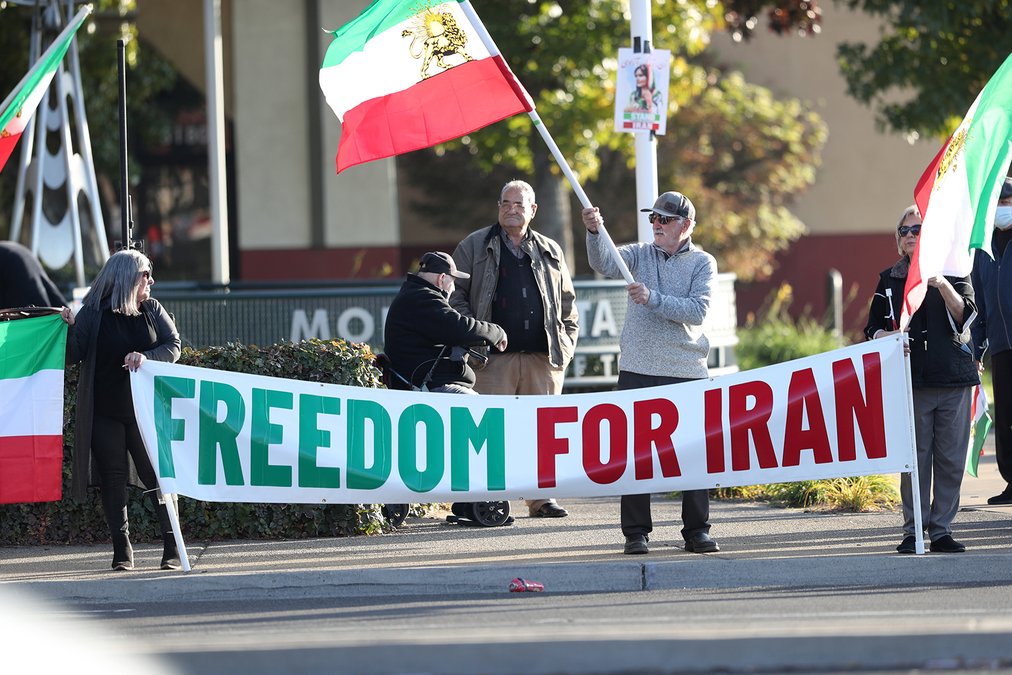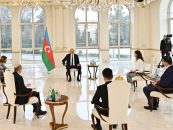By Ural Hatemi
With the presidential elections over in Iran, everyone is focused on one question: will the new government be able to bring about any change in Iran? We can ask this question in the following way: Will Pezeshkian have the power for change? Will the core cadre of the regime allow it? In which areas is change expected? These are the most pressing questions not only in domestic politics but also in Iran’s foreign policy.
First of all, it must be said that some changes are inevitable in every new government. However, what needs to be discussed is in which direction this change will take place, in which areas it will take place, and how effective it will be in Iranian society and in relations with foreign countries and international organizations. In addition, an important question is the direction in which Iran’s relations with terrorist organizations, etc., which it supports and uses in different ways in the region and around the world, will evolve.
Due to the structure of the political institution in Iran, the power of the government is limited. Macro policies and strategies, especially in foreign policy, are determined by Khamenei and the government acts only as the implementing power. As a matter of fact, in the past, we have seen that if the governments went beyond the will and framework set by Khamenei, the processes were blocked. This is also the main reason for the stalemate in the nuclear agreements (5+1) under Hassan Rouhani’s government. Most of the time, cross-border military operations or proxy wars through terrorist organizations are carried out without the government’s knowledge. In domestic politics, for example, the gasoline price hike that caused widespread riots across the country in November 2019 was, according to the then president, done without his knowledge. Today, the government is not the decision-maker on the most controversial issues on the national agenda and in the run-up to the elections. The government does not have the authority to decide on issues that play a primary role in creating economic problems, such as the nuclear deal, the FATF issue, internet restrictions, the issue of women’s clothing, ethnic and religious minorities, etc. That is why Pezeshkian did not promise any improvements during the election process. He only said that necessary negotiations would be held to solve the problems. Therefore, it is more important to ask whether the core leadership of the Islamic Republic, led by Khamenei, will allow change rather than the new government.
The day before the second round of the elections, acting president Mohammad Mohammad Muhbir met with Russian President Vladimir Putin and conveyed a message from Iranian leader Khamenei to Putin. Khamenei’s message to Putin emphasized that the relations between Iran and Russia are very deep and that the bilateral relations will not change with the change of governments. This message sent at the time of the elections is very meaningful in terms of Iran’s foreign policy. On the other hand, Pezeshkian sent a message to Seyyed Hassan Nasrallah, the Secretary General of Lebanese Hezbollah, as soon as he was elected, emphasizing that the support of the “Resistance” is based on the fundamental policies of the Islamic Republic of Iran, the teachings and ideals of Khomeini and the principles set by Khamenei, and will continue strongly. Such meetings and messages suggest that there will be little change in foreign policy in the coming period. Although Pezeshkian speaks in favor of improving relations with the outside world, it can be said that this will not be easy at least due to the principled strategies of the regime. In particular, Trump’s victory in the upcoming US elections may bring about a more difficult period than Pezeshkian imagined.

In addition, institutions and organizations independent of the government can intervene in all areas from economy to culture. The Revolutionary Guards Army, which controls almost 60% of the country’s economy, cannot be audited or questioned by either the government or the parliament. Such structures are even exempt from taxation and sometimes even control the government. Moreover, some institutions and organizations affiliated to these structures receive large shares of the annual budget. This structure, which is tasked with spreading and protecting the ideology of the revolution, is also the root cause of corruption and corruption in the economy, culture, society and politics in Iran. This structure is run independently of the government, with leaders appointed by Khamenei. It is possible to say that change in the country is almost impossible without the permission of this structure, which has military and economic power. Therefore, the most important problem in Iran is the structure in question. The reason for the chaos and tensions in the country in recent years stems from the fact that this structure has been exposed and rendered dysfunctional in the eyes of the people, rather than the apparent problems. This is the basic belief of the regime’s opponents and the 50% of the population who do not vote. According to them, Pezeshkiya himself is part of this structure. Therefore, it is impossible for him to take any initiative to damage it.
In the coming period, Pezeshkian’s attitude and policies towards this structure and Khamenei himself will be the most important factor determining the level of change in the country. Pezeshkian needs Khamenei’s permission to make changes in domestic and foreign policy. In other words, just as it was with Khamenei’s permission that his candidacy was approved and he even won the elections, he will also need to get his permission for change. Although some experts say that Khamenei will allow some changes in limited areas in this period when the country is blocked in domestic and foreign policies, it is more likely that the regime will not step back, especially in macro policies. This is because change and backtracking in macro policies could result in the collapse of the regime.
Finally, if Pezeshkian continues his rhetoric during the election process and confronts the conservative core cadres of the regime who are against change, the fate of his government may not be bright. Therefore, rather than bringing democracy and prosperity to Iran, Pezeshkian may bring new frictions, rivalries and different versions of polarization. This is because the Islamic Republic of Iran is structurally and ideologically averse to even discussing the problems that Pezeshkian wants to solve.






